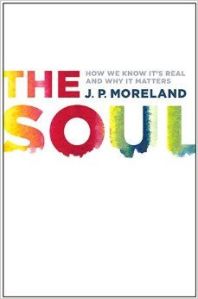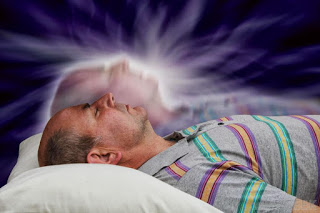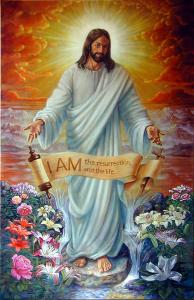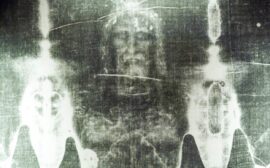Recently, my son joined my wife and I as we attended the funeral of a dearly beloved friend. My son asked the question, “Why is she lying there?” My wife answered and said, “Honey, that’s just her body. Her soul has gone to be with the Lord.” Then, my son asked me the most challenging question yet, he said, “Daddy, what is a soul?” I compared the human soul to an electrical current. It is given by one that generates the power; it does its work; and then returns to the generator. In like manner, God gives us a soul which is our living, inner-being, and then one day God requires it back from us. Afterwards, I really began to wonder if I answered the question thoroughly enough for my young son. How would you answer the question? Furthermore, how does the Bible answer the question? That will be the topic of this article as we ask what is the human soul, and should the Christian believe in the existence of the human soul?
The Old Testament writers use the term nephesh to refer to the human soul. When used of God, “it refers to God as an immaterial, transcendent self, a seat of mind, will, and emotions, etc.” (Moreland 2014, 45). When used of a person, it can refer to a person’s “life itself or to a vital principle/substantial entity that makes something animated or alive” (Moreland 2014, 45). Moreland also states that “there are passages in which ‘nephesh’ refers to the continuing locus of personal identity that departs to a disembodied afterlife as the last breath ceases” (Moreland 2014, 46). What? The Old Testament teaches that an afterlife exists for the human being? Yes.
The Old Testament writers also used the term ruach to describe the soul, or spirit, of a person. Moreland suggests that the two terms are used in collaboration with one another. Yet, the two terms suggest different things. “First, ‘ruach’ is overwhelmingly the term of choice for God…and, second, ‘ruach’ emphasizes the notion of power” (Moreland 2014, 49). Therefore, one could deduce from the Old Testament terms ruach and nephesh that the Old Testament clearly teaches in the existence of the human soul. But what about the New Testament?
Two terms are also used in the New Testament to describe the soul or spirit. The term pseuche is used to address a person’s mind or intellect. The term pneuma, a term used to describe the Holy Spirit (hagios tou pneumon), can mean life, wind, breath, or the inner man.
The New Testament clearly teaches that the human soul exists after the human body ceases to function. The writer of Hebrews states, “You have come to the assembly of God’s firstborn children, whose names are written in heaven. You have come to God himself, who is the judge over all things. You have come to the spirits of the righteous ones in heaven who have now been made perfect” (Hebrews 12:23). In this passage of Scripture, the writer mentions the “spirits of the righteous” as indicative of individuals who have passed from this life and awaiting the resurrection.
In Luke 23:46, Jesus is said to “give up the spirit.” Moreland states three things about the usage of the phrase “giving up the spirit.”
“(1) Jesus committed Himself, not His breath, to God (Luke 23:46); (2) this was a standard way of referring to the disembodied dead in intertestamental Judaism (e.g. 2 Esdras 7:78…); (3) Luke 24:37-39 clearly uses ‘spirit’ much like ‘rephaim’ is used in the Old Testament—as a disincarnate person…” (Moreland 2014, 60-61).
Thus in all of these references, one can deduce that the human soul is a conscious, eternal (from the point of birth onward…much like the geometrical definition of a ray), living entity that constitutes the real nature of a person. The body may change and transform over time, but the real “ego” (or soul) will remain forever.
While space and time does not allow us to investigate the nature of Christian dualism, it should be noted that the Christian should hold to a form of dualism. Dualism is defined by J. P. Moreland as “The view that the soul is an immaterial thing different from the body and the brain” (Moreland 2014, 19). If the Christian does not believe in some form of dualism, a couple of problems emerge. One, the Christian monist (one who holds that the soul and body are part of one part and cannot be separated) will have difficulty explaining certain biblical truths, such as Jesus’ promise to the crucified man that the man would join Jesus that very day in Paradise (Luke 23:43). If a disembodied state did not exist, then the claim of Jesus holds no truth or must be evaluated in a different fashion. The clear reading of the text suggests that the crucified man would join Jesus in Paradise in a disembodied state. Second, the Christian monist will have trouble in holding anyone accountable. If a person only consists of biological processes, then there is no way to hold anyone accountable for any action. The reason is that a person’s body changes. The molecular structure of a person’s body changes over time to the point that one who committed a crime in the 1980s would be a completely different person in the 2010s. The only way to hold one accountable is if one accepts the position that individuals have a non-changing inner-person called the “soul.” This “soul” survives death and will rejoin the body at the final resurrection.
 For more information on the human soul, check out J. P. Moreland’s book titled The Soul: How We Know It’s Real and Why It Matters published by Moody Press.
For more information on the human soul, check out J. P. Moreland’s book titled The Soul: How We Know It’s Real and Why It Matters published by Moody Press.
Bibliography
All Scripture, unless otherwise noted, comes from the New Living Translation. Carol Stream: Tyndale House, 2007).
Moreland, J. P. The Soul: How We Know It’s Real and Why It Matters. Chicago: Moody Press, 2014.
© Pastor Brian Chilton. 2014.






